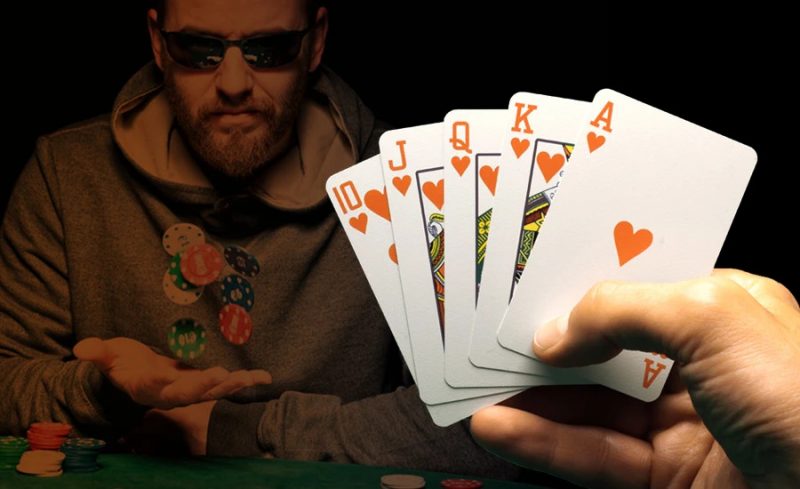
Top 5 Catastrophic Poker Mistakes by Professionals
Poker is a game of skill, strategy, and mental fortitude. Even the most seasoned professionals are not immune to mistakes that can cost them millions and tarnish their reputations. In this article, we delve into five unforgettable blunders in professional poker history that serve as stark reminders: in poker, one slip can change everything.
The Million-Dollar Misclick: Brandon Steven at the WSOP
During the 2010 World Series of Poker Main Event, Brandon Steven made an error that cost him a deep run and potentially a seven-figure payout. Facing an all-in shove, Steven intended to call but misclicked — folding instead. With pocket kings in his hand, the misclick led to an immediate and irreversible exit. It wasn’t just a technical fault, but a moment that underlined how even live poker players can suffer from digital habits.
Steven later revealed how fatigue and mental pressure affected his focus, contributing to the fatal mistake. At such high levels, even milliseconds of indecision can lead to disaster.
This incident is a textbook case for aspiring pros: know your tools, double-check your actions, and maintain composure — especially in high-pressure moments.
Lessons from the Misclick
Brandon Steven’s error shows the increasing relevance of digital interfaces in live events. As hybrid poker grows, players must adapt to both physical and virtual setups.
Concentration is a non-negotiable asset in poker. Mental discipline trumps emotion, especially at major events like the WSOP. Simple missteps are often avoidable.
The broader takeaway is how technology intersects with human error. The tools may evolve, but it’s the mindset and discipline that separate great players from the rest.
The Ivey Bluff: Phil Ivey’s Costly Read
Phil Ivey, often dubbed the greatest poker player alive, is known for his sharp reads. But even he faltered during the 2009 WSOP $2,500 No-Limit 2-7 Draw Lowball. Ivey tried to bluff a seasoned opponent who had already improved his hand significantly. The misread cost Ivey a massive pot and a final table seat.
What made this mistake remarkable was the confidence Ivey exuded. He pushed with absolute conviction — and was quickly called. The cameras captured a rare look of regret on his face, a moment when the king of reads became the victim of miscalculation.
This hand is now dissected in poker forums and training videos as a lesson in the limitations of intuition, no matter how refined it may seem.
Even the Best Get It Wrong
Ivey’s mistake was not about technical skills but overconfidence. Bluffing is vital in poker, but so is understanding your table image and the timing of aggression.
The hand reminds players that every decision must be data-driven. Past performance and perceived dominance don’t guarantee immunity to failure.
It’s also a lesson in humility. Even giants stumble, and their missteps can be as educational as their victories.

Jamie Gold’s Verbal Slip
Jamie Gold, the 2006 WSOP Main Event champion, made headlines not just for his win, but for his controversial table talk. In one key hand, his casual speech hinted at the strength of his hand — unintentionally violating the “one player to a hand” rule. Though not penalised, the incident cast a shadow over his win.
The poker community debated whether his verbal clues constituted ethical play. Some believed he bent the rules; others argued he simply used mind games. Regardless, it became clear that psychological warfare has boundaries.
Gold’s win remains controversial because of these tactics. While his skill can’t be denied, his reputation suffered from what many viewed as deceptive communication rather than strategy.
The Ethics of Table Talk
Poker is as much psychological as it is mathematical, but ethical boundaries exist. Speech play can easily blur into collusion or rule-breaking.
Jamie Gold’s case initiated deeper scrutiny on verbal behaviour in tournaments. Organisers implemented clearer policies in subsequent years.
Players must remember: cleverness must stay within the bounds of integrity. Bluffing is legal, misleading speech is a grey zone that can damage reputations.
Popular topics
-
 Limits and self-control in poker: set...
Limits and self-control in poker: set...In poker, “losing control” rarely happens in one dramatic …
-
 The Psychology of Wins and Losses in ...
The Psychology of Wins and Losses in ...Online poker challenges players not only with mathematical strategy …
-
 Bluffing in poker, how to do it right?
Bluffing in poker, how to do it right?Poker is one of the most popular card games …
